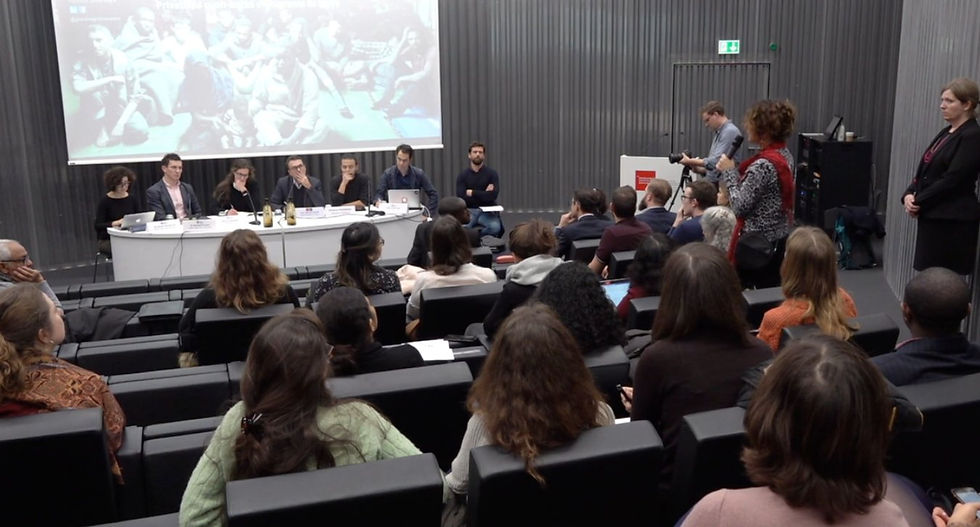Legal complaint filed against Italy for privatised push-backs to Libya and migrant abuse
GLAN filed a complaint against Italy with the UN Human Rights Committee on behalf of an individual whose journey from Libya was intercepted in the high seas by the Panamanian merchant vessel, the Nivin. The complaint is the first submitted to an international human rights forum aimed to the phenomenon of “privatized push-backs”, whereby EU coastal States engage commercial ships to return refugees and other persons in need of protection back to unsafe locations in contravention of their human rights obligations.
For more information visit our dedicated case page: www.glanlaw.org/nivincase
In the afternoon of November 7, 2018, the Italian Maritime Rescue Coordination Centre (MRCC) instructed the Nivin to rescue a distressed migrant boat and to liaise with the infamous Libyan Coast Guard (LYCG). The LYCG then directed the Nivin towards Libya, where the captured passengers staged a stand-off, resisting their illegal debarkation. Libyan security forces violently removed from the vessel after 10 days using tear gas and rubber as well as live bullets. The claimant was shot in the leg and was arbitrarily detained, interrogated, beaten, subjected to forced labour and denied treatment for months.
The legal submission made use of evidence in a report compiled by Forensic Oceanography, part of the Forensic Architecture agency based at Goldsmiths, University of London with Charles Heller as lead investigator. The report, published today, combined the analysis of multiple sources of evidence to offer a detailed reconstruction of the incident. It demonstrates that privatized push-backs have risen sharply since June 2018. The result is that seafarers are being used by states seeking to circumvent their obligations towards refugees.
The lawyers argue that Italy and other states are breaching their obligations under international law by using private merchant vessels as an instrument of refoulement – the returning of refugees to where they will suffer persecution and torture. By relinquishing its responsibility to offer a port of safety, Italy violated its human rights obligations, including under the International Covenant on Civil and Political Rights, and the Convention Against Torture.
For more information visit our dedicated case page: www.glanlaw.org/nivincase

